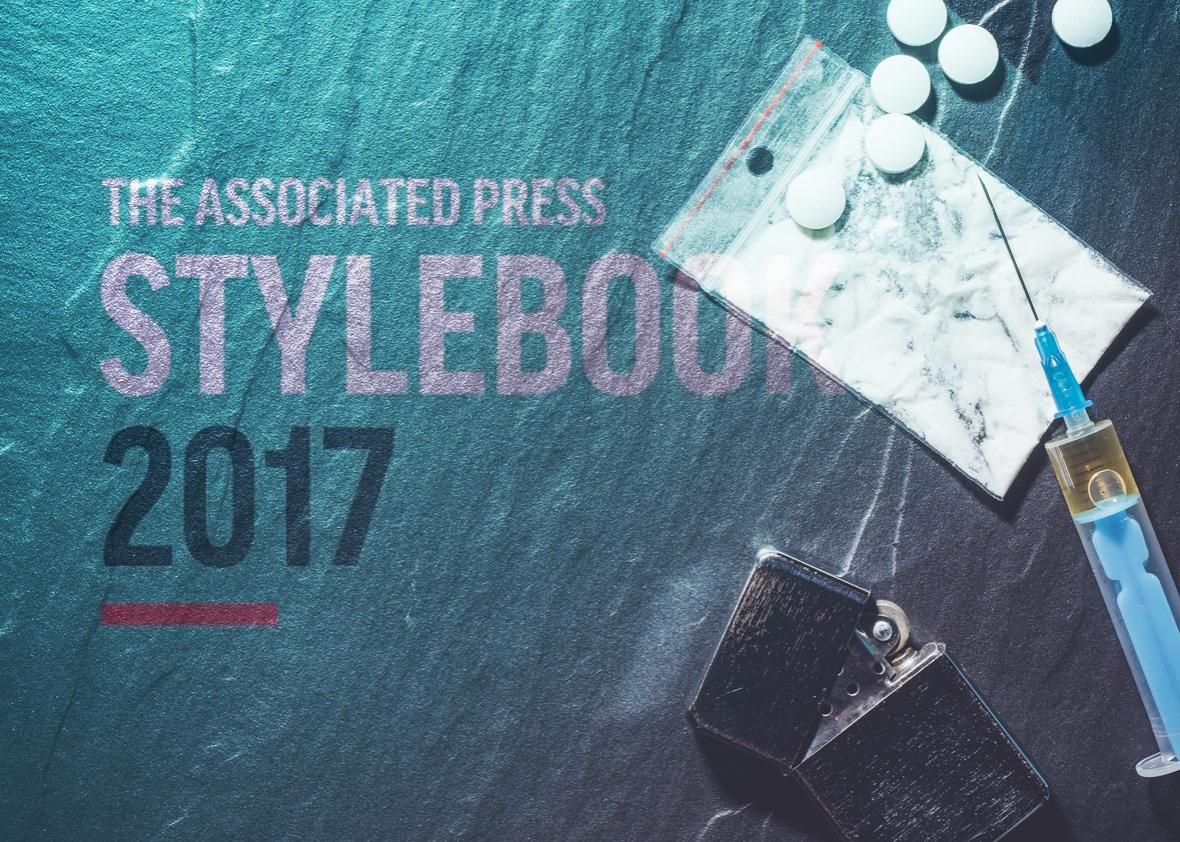The 2017 version of the Associated Press Stylebook, the biblical guide for journalists seeking clear and precise writing, includes one particularly interesting update on how journalists ought to refer to people with addictions. The AP’s new recommendation now instructs its followers to “avoid words like alcoholic, addict, user and abuser unless they are in quotations or names of organizations”—such as the National Institute on Drug Abuse or Alcoholics Anonymous—and to “instead, choose phrasing like he was addicted, people with heroin addiction or he used drugs.”
This may seem like a subtle change. But the intention behind it is important: to linguistically shift the blame of drug addiction away from the people afflicted. While “substance abuser” equates the individual with the problem, “person with a substance use disorder” suggests that it’s the addiction, rather than the person, that should carry the blame.*
Jeff McMillan, lead author of the stylebook’s new entry on addiction, told Slate that he combed scientific journals and interviewed prominent researchers in the field of addiction medicine to figure out best practices for how to refer to people with substance abuse. One piece of literature McMillan remembered was a paper written by President Obama’s former drug czar, Michael Botticelli, titled: “Changing the Language of Addiction.” Botticelli cites a 2010 study that found even veteran clinicians were slightly more likely to recommend punitive measures for people described as “substance abusers” and therapeutic measures for clients referred to as “people with substance abuse disorders.” The effect was small, but if trained professionals might be making that error, it seems at least possible that untrained readers might make the same subconscious assumptions.
It’s also more consistent with how we talk about other medical conditions. After all, we don’t call people diagnosed with Type 2 diabetes “sugar abusers.” Delivered in this obviously medical context, the “abuse” modifier implies blame that should not be appended to medical conditions, even ones that can result from personal choices. The AP Stylebook has already made a similar shift when talking about people with mental illness: The stylebook’s 2013 entry on mental illness suggests parallel person-first language to describe various diagnoses. For example, He was diagnosed with schizophrenia is the preferred identifier, as opposed to calling someone a schizophrenic. The same should be used across all diagnoses—e.g. person with Type 2 diabetes rather than diabetic.
Finally, as someone who once had a heroin addiction, I would also argue that the AP’s change, and the shift it represents, could make it more likely that people with addictions will share their stories. For me, being called an “addict” defines my humanity with one small facet of my identity, essentially erasing the rest of me. The language we use to bring characters to life in our stories matters. That’s especially true when it comes to addiction: a condition that is still too often treated like a sin or crime. Defaulting to calling sources addicts and abusers unfairly encases people who are willing to be vulnerable, who are willing to tell their stories on the record, in a negative perception.
The reality is people with addiction are coping with pain. Drug overdoses are now the No. 1 cause of death among Americans under 50. As a former heroin user turned journalist covering the opioid crisis, I implore you to follow the AP’s lead.
*This sentence has been updated to more accurately reflect the author’s preferred terminology.
